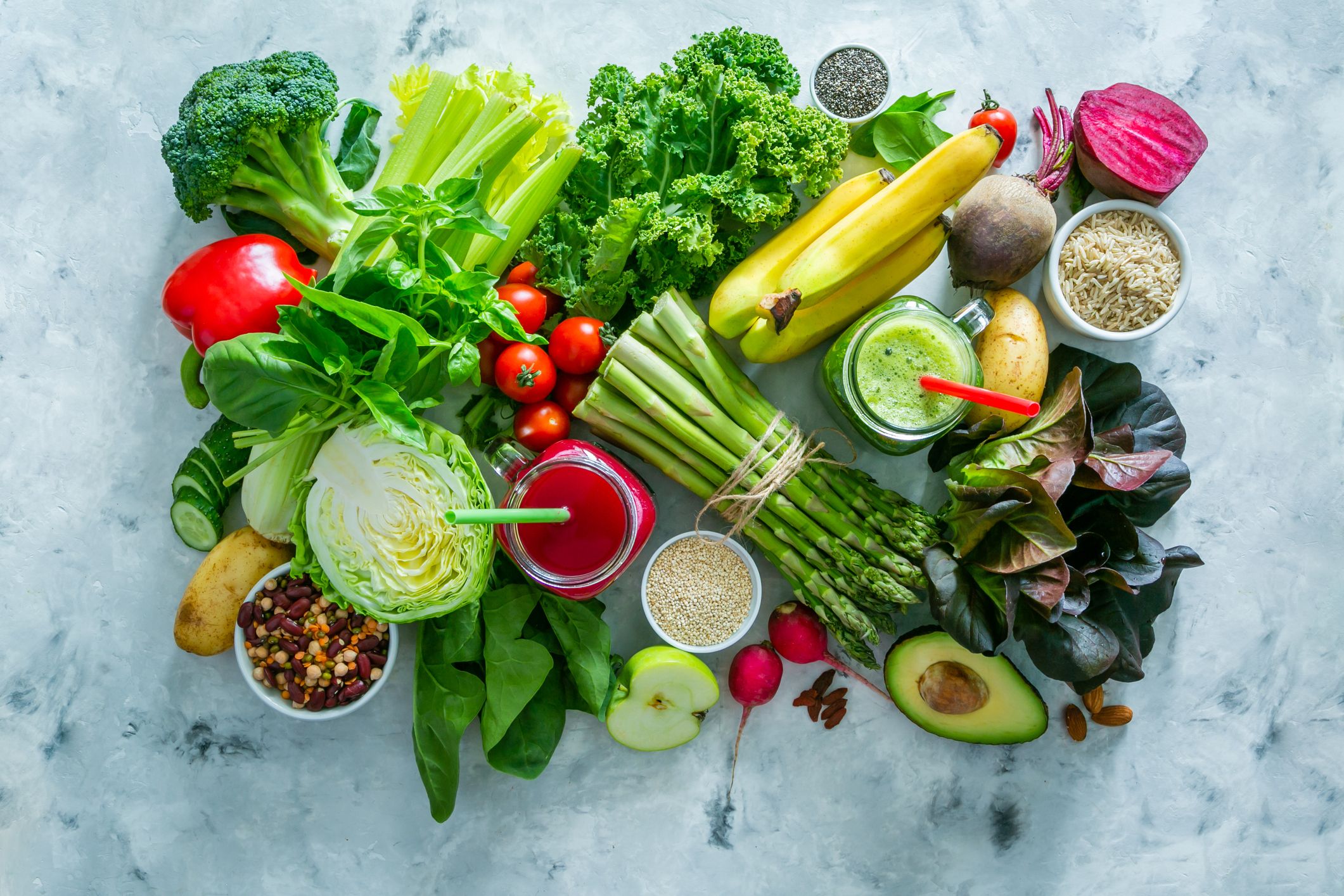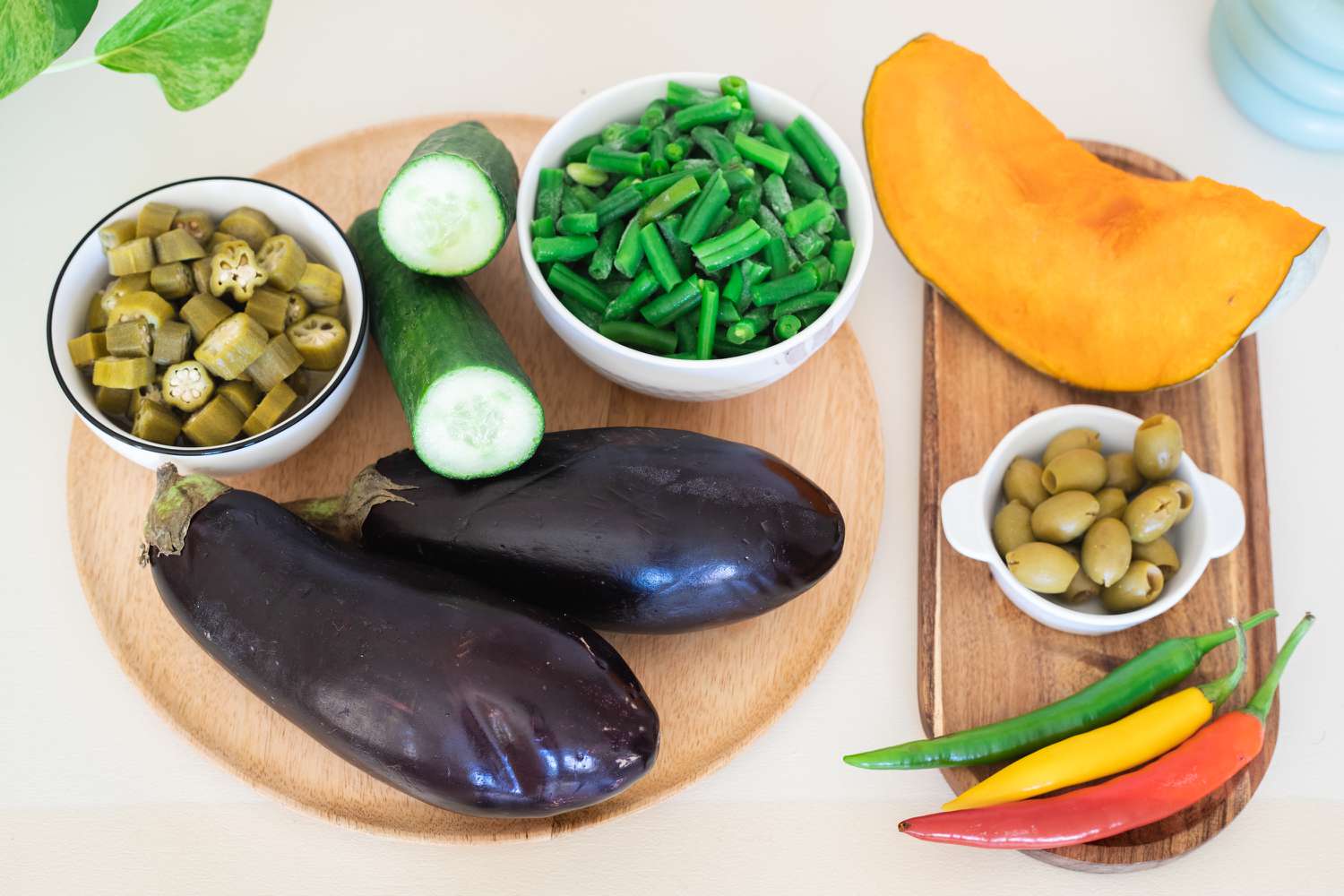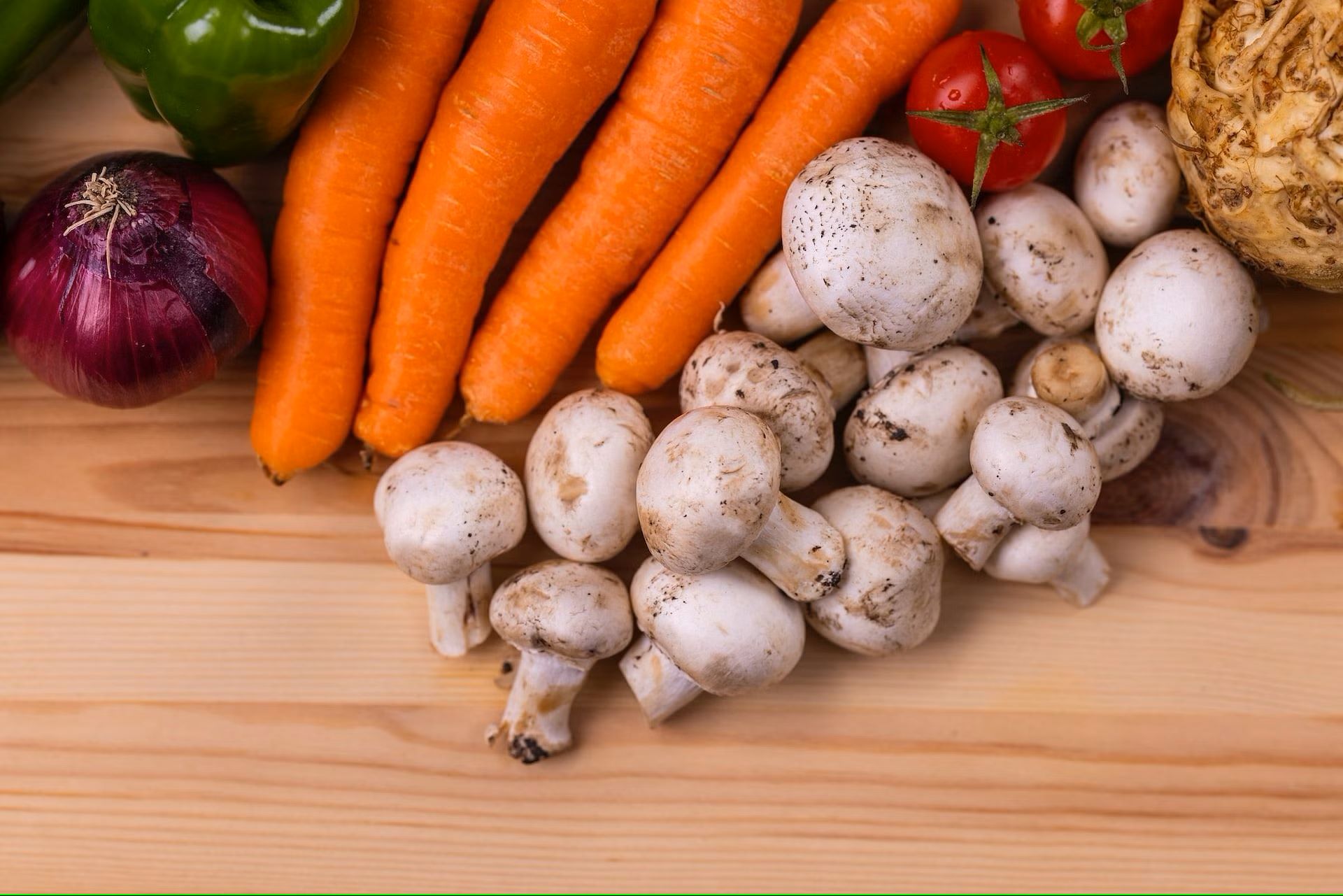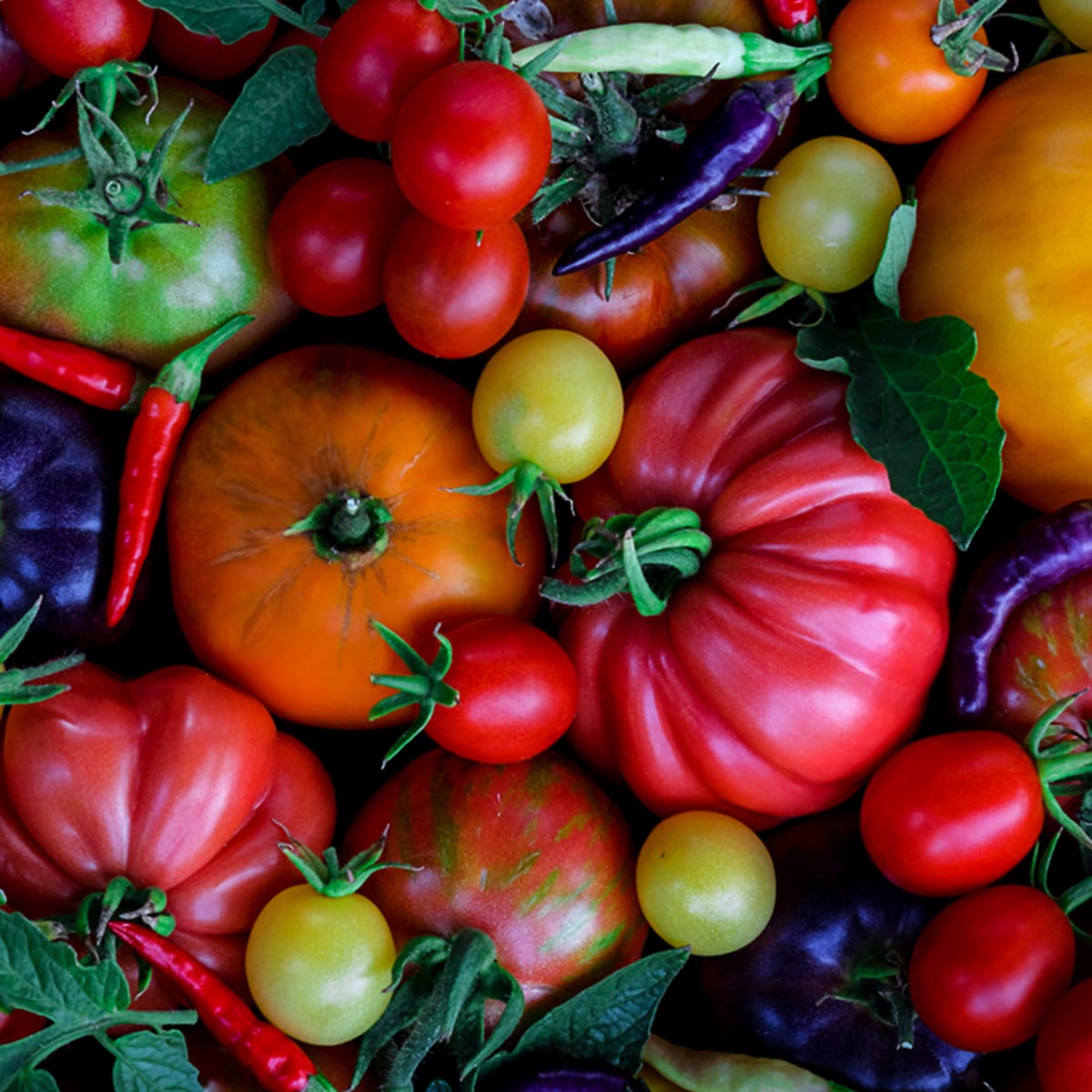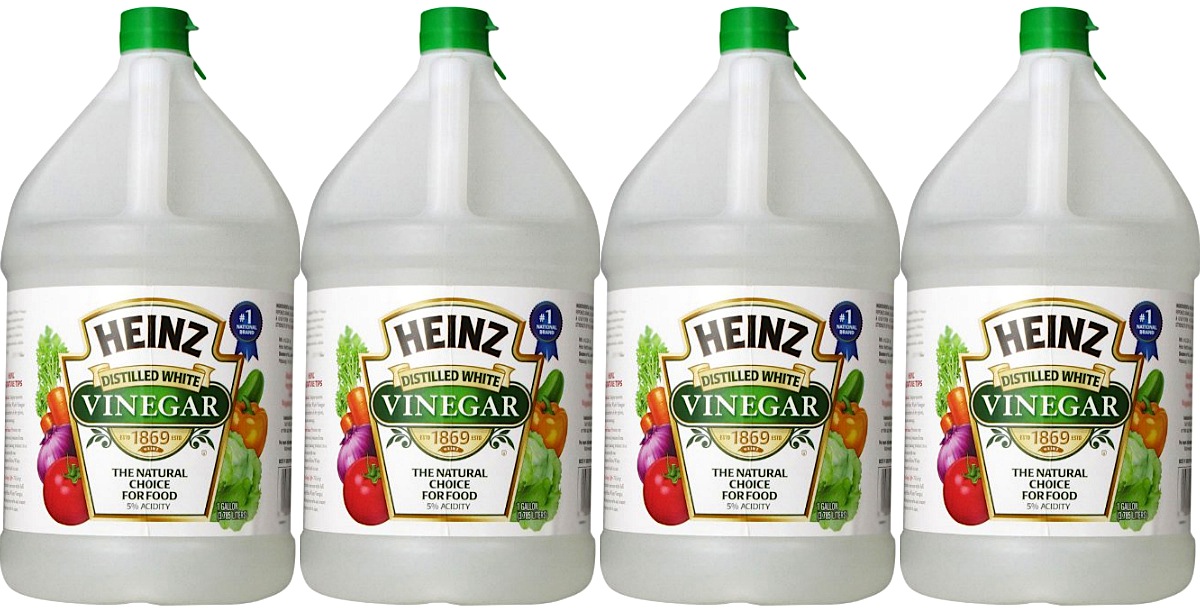Home>Gardening News and Trends>Latest News>Which Is Better For You Fruit Or Vegetables
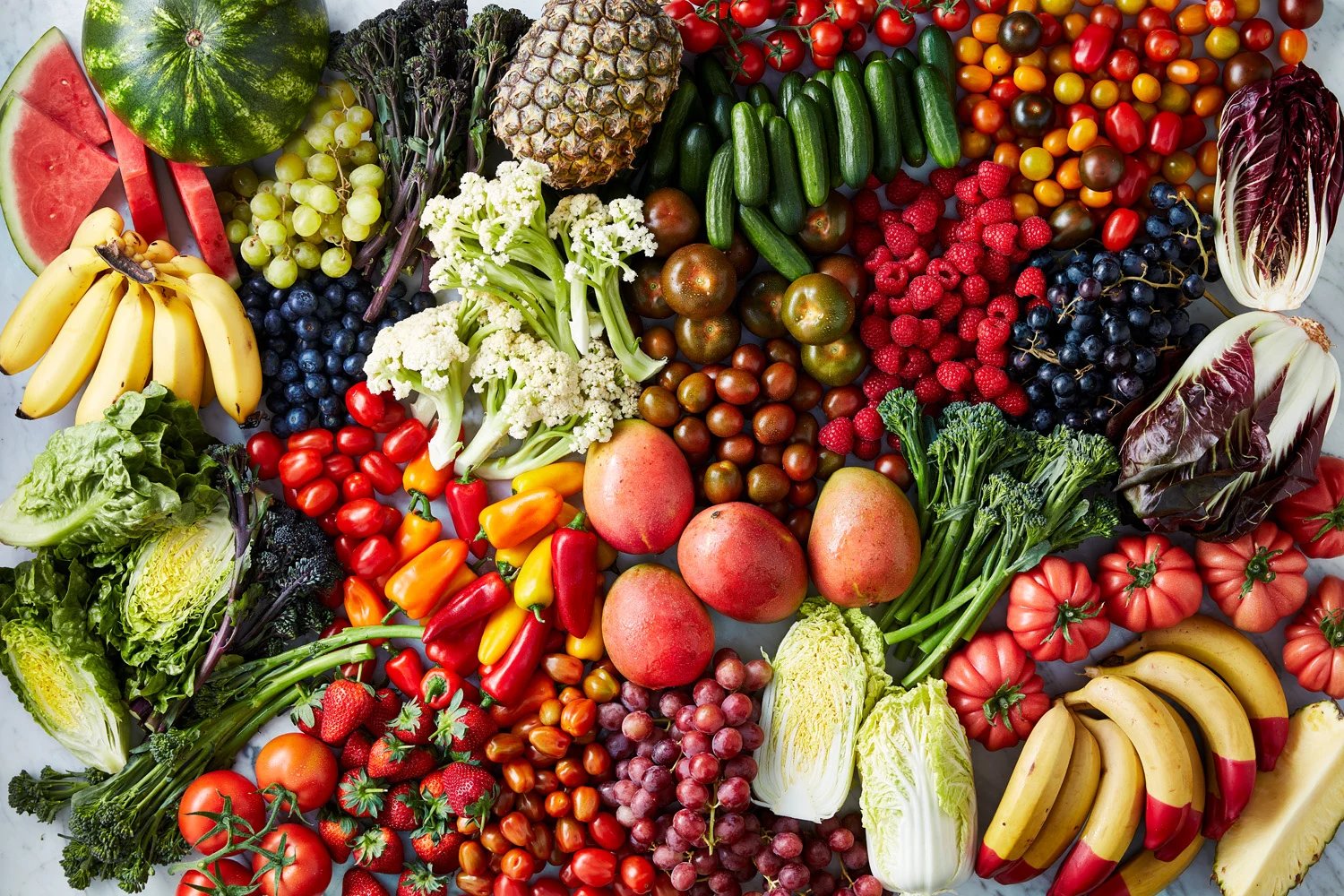

Latest News
Which Is Better For You Fruit Or Vegetables
Modified: January 22, 2024
Learn the latest news on whether fruit or vegetables are better for you. Discover the health benefits and make informed choices for a nutritious diet.
(Many of the links in this article redirect to a specific reviewed product. Your purchase of these products through affiliate links helps to generate commission for Chicagolandgardening.com, at no extra cost. Learn more)
Table of Contents
Introduction
Fruits and vegetables are essential components of a healthy diet, providing a wide range of essential nutrients that the body needs to function optimally. Incorporating fruits and vegetables into your daily meals can lead to numerous health benefits, including disease prevention, improved digestion, weight management, and enhanced overall well-being.
When it comes to choosing between fruits and vegetables, many people wonder which is better for them. While both offer an array of nutrients, there are some key differences that may influence your preference or dietary choices.
In this article, we will explore the nutritional comparison between fruits and vegetables and delve into the specific health benefits of each category. Additionally, we will examine the fiber content, antioxidant levels, and vitamin and mineral content, as well as how fruits and vegetables contribute to disease prevention, digestive health, and weight management.
By understanding the unique qualities and benefits of both fruits and vegetables, you can make informed choices to create a well-rounded and nourishing diet.
Nutritional Comparison
When it comes to overall nutritional value, both fruits and vegetables offer a wide array of essential vitamins, minerals, and nutrients. However, there are some key differences between the two.
Fruits are known for their high sugar content, particularly natural sugars such as fructose. This makes fruits an excellent source of quick energy. On the other hand, vegetables generally contain less sugar and are lower in calories compared to most fruits.
One notable difference between fruits and vegetables is their fiber content. While both provide dietary fiber, vegetables tend to have a higher fiber content than fruits. Fiber is crucial for maintaining a healthy digestive system, promoting bowel regularity, and aiding in weight management.
In terms of macronutrients, fruits and vegetables also differ. Fruits are generally higher in carbohydrates, while vegetables tend to have higher protein content. However, the protein content in vegetables is typically lower compared to other protein-rich foods such as meat, legumes, and dairy products.
Additionally, fruits are excellent sources of vitamins, particularly vitamin C, vitamin A, and various B vitamins. They also contain antioxidants, which help protect the body against oxidative stress and damage caused by free radicals.
On the other hand, vegetables are rich in a wide range of vitamins and minerals, including vitamin K, vitamin E, vitamin B6, potassium, magnesium, and folate. These nutrients play crucial roles in maintaining healthy bones, supporting immune function, and promoting cardiovascular health.
Ultimately, both fruits and vegetables are beneficial for overall health. Incorporating a variety of fruits and vegetables into your diet ensures that you receive a wide range of nutrients to support your body’s functions.
Health Benefits of Fruits
Fruits are not only delicious but also offer a multitude of health benefits. Here are some reasons why you should include fruits in your daily diet:
- Rich in antioxidants: Fruits are packed with antioxidants, such as vitamin C, vitamin E, and other phytochemicals. These compounds help fight against free radicals, reducing the risk of chronic diseases like heart disease, cancer, and age-related macular degeneration.
- Excellent source of dietary fiber: Fruits are high in fiber, particularly insoluble fiber, which aids in digestion and promotes regular bowel movements. Consuming fiber-rich fruits can help prevent constipation and maintain a healthy digestive system.
- Supports immune function: Many fruits, such as citrus fruits, berries, and kiwi, are rich in vitamin C, which plays a vital role in supporting immune function. Vitamin C helps strengthen the immune system and protects against common illnesses and infections.
- Promotes heart health: Fruits like berries, pomegranates, and oranges contain heart-healthy compounds like antioxidants, flavonoids, and potassium. These nutrients help reduce inflammation, lower blood pressure, and improve cholesterol levels, ultimately reducing the risk of heart disease.
- Aids in weight management: Most fruits are low in calories and high in water content, making them a satisfying and healthy choice for weight management. The fiber in fruits also helps you feel fuller for longer, reducing the chances of overeating.
- Hydrating and refreshing: Many fruits have high water content, which helps to keep you hydrated throughout the day. Watermelon, strawberries, and oranges are excellent choices for staying hydrated and enjoying a refreshing snack.
- Improves skin health: Fruits rich in antioxidants, such as berries, papaya, and citrus fruits, can help improve skin health by promoting collagen production, reducing the appearance of wrinkles, and fighting against skin-damaging free radicals.
- Boosts brain function: Some fruits, particularly berries, are known for their brain-boosting properties. They are rich in antioxidants and compounds that have been linked to improved cognitive function, memory, and overall brain health.
With their abundance of nutrients and health-promoting properties, fruits are a delicious and beneficial addition to any diet. Aim to incorporate a variety of fruits into your meals and snacks to reap the numerous health benefits they offer.
Health Benefits of Vegetables
Vegetables are a crucial component of a balanced and nutritious diet. Here are some of the health benefits that vegetables provide:
- Nutrient-dense: Vegetables are packed with essential vitamins, minerals, and antioxidants that support overall health and well-being. They are particularly rich in vitamins A, C, K, and E, as well as minerals like potassium, magnesium, and folate.
- Supports digestion: Vegetables are an excellent source of dietary fiber, both soluble and insoluble. Fiber helps promote regular bowel movements, prevent constipation, and maintain a healthy digestive system.
- Heart-healthy: Many vegetables, such as leafy greens, tomatoes, and broccoli, contain heart-protective nutrients like potassium, folate, and antioxidants. These nutrients help lower blood pressure, reduce inflammation, and support cardiovascular health.
- Weight management: Vegetables are low in calories and high in fiber, making them an ideal choice for weight loss or weight management. They provide essential nutrients and help fill you up, preventing overeating and promoting a healthy body weight.
- Antioxidant-rich: Vegetables contain a wide range of antioxidants, including beta-carotene, lycopene, and flavonoids. These antioxidants help protect cells from damage caused by free radicals, reducing the risk of chronic diseases and supporting overall health.
- Improves immune function: Many vegetables, such as bell peppers, spinach, and broccoli, are rich in vitamin C, which plays a vital role in supporting the immune system. Consuming vegetables regularly can help strengthen the immune system and defend against infections and illnesses.
- Bone health: Some vegetables, like leafy greens, broccoli, and Brussels sprouts, are excellent sources of calcium, magnesium, and vitamin K. These nutrients contribute to maintaining strong bones, reducing the risk of osteoporosis, and supporting bone health.
- Prevents chronic diseases: Numerous studies have shown that a diet rich in vegetables is associated with a reduced risk of chronic diseases, including certain types of cancer, heart disease, and diabetes. The antioxidants and phytochemicals present in vegetables play a crucial role in disease prevention.
Incorporating a wide variety of colorful vegetables into your diet ensures that you receive a diverse range of nutrients and health benefits. Aim to consume vegetables in different forms, such as raw, steamed, or roasted, to maximize their nutritional value.
Fiber Content
Fiber is an important component of a healthy diet, contributing to proper digestion, weight management, and overall well-being. Both fruits and vegetables contain dietary fiber, but there are variations in the fiber content between the two.
Vegetables, especially leafy greens such as spinach, kale, and broccoli, are known for their high fiber content. These fiber-rich vegetables provide bulk to the diet, aiding in digestion and promoting regular bowel movements. The fiber in vegetables also helps regulate blood sugar levels and contributes to a feeling of satiety, making them beneficial for weight management.
Fruits also contain fiber, but they generally have a lower fiber content compared to vegetables. However, fruits with edible peels or skins, such as apples and pears, tend to be higher in fiber. Eating fruits with their peel intact can increase fiber intake and provide additional health benefits. Incorporating a variety of fruits into your diet ensures a balanced intake of fiber from different sources.
Dietary fiber can be classified into two main types: soluble fiber and insoluble fiber. Soluble fiber, found in fruits and vegetables, forms a gel-like substance in the digestive tract and helps regulate blood cholesterol levels and control blood sugar levels. Insoluble fiber, predominantly found in vegetables, adds bulk to the stool, promoting regular bowel movements and preventing constipation.
It is recommended to consume a combination of fruits and vegetables to ensure an adequate intake of dietary fiber. The daily recommended intake of fiber varies depending on factors such as age, gender, and overall health. On average, adults should aim for around 25-30 grams of fiber per day.
Remember to increase your fiber intake gradually and drink plenty of water to prevent any discomfort or digestive issues. By including fiber-rich fruits and vegetables in your diet, you are supporting proper digestion, maintaining a healthy weight, and promoting overall gut health.
Antioxidant Content
Antioxidants play a crucial role in protecting the body against oxidative stress and damage caused by free radicals. Both fruits and vegetables are rich sources of antioxidants, although the types and quantities may vary between the two.
Fruits are well-known for their antioxidant content, particularly vitamins C and E. Citrus fruits like oranges, strawberries, and kiwis are high in vitamin C, which helps boost the immune system and protect against cellular damage. Berries, such as blueberries, raspberries, and blackberries, are packed with antioxidants called anthocyanins, which have been associated with various health benefits, including reducing inflammation and promoting brain health.
Vegetables are also abundant in antioxidants, with different types of vegetables containing a variety of antioxidant compounds. For example, leafy green vegetables like spinach and kale are rich in carotenoids, such as lutein and zeaxanthin, which are beneficial for eye health. Cruciferous vegetables like broccoli and Brussels sprouts contain sulfur compounds that possess potent antioxidant properties and are known to support detoxification processes in the body.
It’s worth noting that the antioxidant content can vary depending on factors such as the variety of the fruit or vegetable, ripeness, and the way it is grown or processed. Generally, consuming a diverse range of fruits and vegetables of different colors ensures a greater variety of antioxidants and their associated health benefits.
Antioxidants work synergistically, meaning that they often have a stronger effect when consumed together rather than in isolation. This further emphasizes the importance of consuming a variety of fruits and vegetables to maximize the antioxidant benefits.
It’s important to note that while fruits and vegetables are excellent sources of antioxidants, they should be consumed as part of a balanced diet that includes other nutrient-dense foods. A well-rounded diet with a variety of fruits, vegetables, whole grains, lean proteins, and healthy fats ensures a comprehensive intake of antioxidants and other essential nutrients necessary for optimal overall health.
Vitamin and Mineral Content
Fruits and vegetables are packed with a wide range of essential vitamins and minerals that are vital for maintaining good health and supporting various bodily functions. Let’s explore the diverse vitamin and mineral content found in fruits and vegetables:
Vitamins:
- Vitamin C: Citrus fruits, berries, kiwi, and leafy green vegetables are excellent sources of vitamin C. This powerful antioxidant vitamin supports immune function, collagen production, and aids in wound healing.
- Vitamin A: Fruits and vegetables with vibrant colors, such as carrots, sweet potatoes, spinach, and kale, are rich in vitamin A. This vitamin promotes vision health, supports cell growth, and strengthens the immune system.
- Vitamin K: Leafy greens like kale, spinach, and broccoli are abundant in vitamin K. This vitamin is necessary for blood clotting and plays a crucial role in bone health.
- Vitamin E: Avocados, nuts, seeds, and spinach are excellent sources of vitamin E. This fat-soluble vitamin acts as an antioxidant, protecting cells from damage caused by free radicals.
- B vitamins: Vegetables like broccoli, asparagus, and leafy greens are rich in various B vitamins, including folate, riboflavin, and niacin. B vitamins play essential roles in energy production, brain function, and red blood cell formation.
Minerals:
- Potassium: Bananas, oranges, avocados, and leafy greens are rich in potassium. This mineral helps regulate blood pressure, muscle function, and fluid balance.
- Magnesium: Leafy green vegetables like spinach and Swiss chard, as well as nuts, seeds, and legumes, are excellent sources of magnesium. This mineral plays a vital role in nerve function, muscle contraction, and bone health.
- Calcium: While dairy products are often associated with calcium, vegetables like broccoli, kale, and bok choy also provide this essential mineral. Calcium is crucial for maintaining strong bones and teeth, muscle function, and nerve transmission.
- Iron: Leafy greens, legumes, and dried fruits like raisins are good sources of iron. This mineral is necessary for the production of red blood cells and oxygen transport throughout the body.
- Zinc: Zinc can be found in fruits like avocados and berries, as well as in vegetables like spinach and Brussels sprouts. This mineral supports immune function, wound healing, and supports healthy skin.
By incorporating a wide variety of fruits and vegetables into your diet, you can ensure a diverse intake of vitamins and minerals necessary for optimal health and well-being.
Disease Prevention
One of the significant benefits of consuming fruits and vegetables is their potential in preventing various diseases. The nutrients and compounds found in these plant-based foods play a crucial role in reducing the risk of chronic illnesses. Here are some ways in which fruits and vegetables can contribute to disease prevention:
- Heart Disease: Fruits and vegetables, particularly those rich in antioxidants and fiber, have been associated with a reduced risk of heart disease. They help lower blood pressure, reduce inflammation, and improve cholesterol levels, all of which are risk factors for cardiovascular problems.
- Cancer: Research suggests that diets rich in fruits and vegetables may decrease the risk of certain types of cancer. The antioxidants and phytochemicals in these foods neutralize free radicals and inhibit the growth of cancer cells. Cruciferous vegetables like broccoli and cauliflower, as well as berries and tomatoes, have shown particular promise in cancer prevention.
- Diabetes: A diet high in fruits and vegetables, particularly those with a low glycemic index, can help regulate blood sugar levels and reduce the risk of type 2 diabetes. The fiber content and antioxidant properties of these foods contribute to improved insulin sensitivity and better overall blood sugar control.
- Obesity: Increasing the consumption of fruits and vegetables as part of a balanced diet can aid in weight management and prevent obesity. These foods are low in calories, high in fiber, and help create a feeling of fullness, reducing the likelihood of overeating and promoting a healthy body weight.
- Digestive Health: The fiber content in fruits and vegetables promotes a healthy digestive system by preventing constipation and maintaining regular bowel movements. Additionally, certain fruits and vegetables contain natural enzymes that aid in digestion and contribute to a healthy gut microbiome.
- Eye Health: Many fruits and vegetables, such as leafy greens, carrots, and berries, contain nutrients like vitamin A, vitamin C, and antioxidants that support eye health. These nutrients protect the eyes from age-related macular degeneration and other vision problems.
- Brain Health: Diets rich in fruits and vegetables have been associated with better cognitive function and a lower risk of age-related cognitive decline. The antioxidants, vitamins, and phytochemicals found in these foods support brain health and protect against neurodegenerative diseases.
While fruits and vegetables alone cannot guarantee the complete prevention of these diseases, incorporating them into a well-balanced diet can contribute to a healthier lifestyle and reduce the risk of chronic illnesses. Aim to consume a variety of colorful fruits and vegetables regularly to reap the maximum health benefits.
Digestive Health
Proper digestion is essential for overall health and well-being, and incorporating fruits and vegetables into your diet can greatly contribute to maintaining a healthy digestive system. Here are a few ways in which fruits and vegetables promote digestive health:
- Dietary Fiber: Fruits and vegetables are excellent sources of dietary fiber, which is crucial for maintaining a healthy digestive system. Fiber adds bulk to the diet, promoting regular bowel movements and preventing constipation. It helps in softening the stool and facilitating its smooth passage through the intestines.
- Improved Digestion: The fiber content in fruits and vegetables aids in digesting food effectively. It helps regulate the speed of digestion, ensuring that nutrients are absorbed properly. Additionally, the natural enzymes present in some fruits and vegetables, such as pineapples and papayas, can help break down proteins and improve overall digestion.
- Prevention of Digestive Disorders: Consuming a diet rich in fruits and vegetables has been associated with a lower risk of developing digestive disorders. The high fiber content can help prevent common digestive problems such as constipation, diverticulosis, and hemorrhoids. Furthermore, the antioxidants and phytochemicals found in these foods have anti-inflammatory properties that can help protect against gastrointestinal inflammation and damage.
- Promotion of Gut Health: Fruits and vegetables contain prebiotic fibers that act as food for the beneficial bacteria in the gut. These bacteria, known as probiotics, help maintain a healthy balance of microorganisms in the digestive system, supporting optimal gut health. A healthy gut microbiome is crucial for proper digestion, nutrient absorption, immune function, and even mental health.
- Hydration: Many fruits and vegetables have high water content, which helps prevent dehydration and keeps the digestive system functioning smoothly. Staying properly hydrated is important for maintaining the elasticity of the intestines and preventing issues like constipation.
Including a variety of fruits and vegetables in your diet can provide the necessary fiber and nutrients to support a healthy digestive system. Aim to consume both raw and cooked fruits and vegetables to benefit from their different nutritional profiles. If you have specific digestive concerns or conditions, it’s important to consult with a healthcare professional for personalized guidance and recommendations.
Weight Management
When it comes to weight management, fruits and vegetables play a crucial role in maintaining a healthy body weight. Here’s how they can contribute to achieving and maintaining a healthy weight:
- Low in Calories: Most fruits and vegetables are low in calories, making them ideal choices for weight management. They provide essential nutrients without adding excessive calories to your diet. Incorporating fruits and vegetables into your meals and snacks can help increase the volume of food you consume while keeping the calorie intake in check.
- High in Fiber: Fruits and vegetables are rich in dietary fiber, particularly vegetables. Fiber adds bulk to the diet, promoting satiety and preventing overeating. It slows down the digestion process, helping you feel full for longer periods and reducing the likelihood of unnecessary snacking or excessive calorie consumption.
- Water Content: Many fruits and vegetables have high water content, contributing to their volume and weight. This makes them more filling and hydrating, without adding a significant number of calories. Water-rich fruits and vegetables, such as cucumbers, melons, and leafy greens, can help you feel satisfied while staying properly hydrated, supporting your weight management efforts.
- Nutrient Density: Fruits and vegetables not only provide minimal calories, but they are also packed with essential nutrients, including vitamins, minerals, and antioxidants. By incorporating these nutrient-dense foods into your diet, you can meet your nutritional needs while keeping the calorie intake in check.
- Snack Alternatives: Fruits and vegetables make excellent snack choices for weight management. When you crave a snack, reach for a piece of fruit or a handful of vegetable sticks instead of high-calorie and unhealthy options. They provide a satisfying crunch, natural sweetness, and a variety of flavors without the additional calories.
- Meal Volumization: Adding fruits and vegetables to your meals can help increase their volume and create a sense of fullness. For example, adding a variety of vegetables to stir-fries, salads, or soups can make your meal more visually appealing, satisfying, and filling without significantly increasing the calorie content.
Remember, a balanced diet and overall healthy lifestyle are key to successful weight management. While fruits and vegetables are beneficial for weight control, it’s important to consider portion sizes, make mindful food choices, and incorporate other healthy habits, such as regular physical activity, to achieve and maintain a healthy weight.
Conclusion
Fruits and vegetables are both nutritional powerhouses that offer a multitude of health benefits. Whether you prefer the sweetness of fruits or the variety and versatility of vegetables, incorporating both into your diet is essential for optimal nutrition and overall well-being.
Both fruits and vegetables provide a wide range of vitamins, minerals, and antioxidants that support various bodily functions and help prevent chronic diseases. Fruits are known for their natural sugars, high vitamin C content, and antioxidant properties. On the other hand, vegetables are rich in dietary fiber, minerals like potassium and magnesium, and a variety of vitamins.
By including fruits and vegetables in your daily meals, you can improve your digestive health, support weight management efforts, and boost your immune system. The fiber content in both fruits and vegetables aids in digestion and maintains regular bowel movements. Additionally, the high water content, low calorie counts, and abundance of nutrients contribute to weight management and overall health.
When it comes to choosing between fruits and vegetables, it’s important to remember that variety is key. Each fruit and vegetable offers its unique combination of nutrients and health benefits. By consuming a diverse range of colors, textures, and flavors, you can ensure a comprehensive nutrient intake.
In summary, both fruits and vegetables are essential components of a well-balanced diet. They provide vital nutrients, support overall health, and reduce the risk of chronic diseases. The key is to embrace variety, experiment with different fruits and vegetables, and find enjoyable ways to incorporate them into your meals and snacks. By doing so, you can reap the numerous health benefits and nourish your body with the goodness nature has to offer.
